How often does Variable Mortgage Rate Change
Variable mortgage rates are a popular choice among homebuyers due to their flexibility. Unlike fixed mortgage rates, variable rates can change over time. Understanding how often variable mortgage rates change is crucial for borrowers to make informed decisions. In this article, we will explore the factors that influence rate changes and the frequency at which they occur.
Key Takeaways
- Variable mortgage rates can change over time.
- Historical trends show that variable mortgage rates have fluctuated.
- Factors such as the economy and interest rates influence the frequency of rate changes.
- Borrowers should stay informed about economic indicators that can impact variable mortgage rates.
- Understanding the frequency of rate changes can help borrowers make informed decisions.
Understanding Variable Mortgage Rates
What is a variable mortgage rate?
A variable mortgage rate is a type of interest rate that can change over time. Unlike a fixed mortgage rate, which remains the same for the entire term of the loan, a variable mortgage rate is tied to a benchmark rate, such as the prime rate. This means that as the benchmark rate fluctuates, so does the variable mortgage rate. It's important to note that the frequency of rate changes can vary depending on several factors, including the lender's policies and market conditions.
When considering a variable mortgage rate, it's helpful to use a mortgage calculator to estimate your monthly payments based on different interest rate scenarios. This can give you a better understanding of how changes in the variable rate may impact your budget. Additionally, it's worth mentioning the concept of a wraparound mortgage, which is a type of financing that combines an existing mortgage with a new loan. While not directly related to variable mortgage rates, it's important to be aware of different mortgage options when exploring home financing.
How do variable mortgage rates work?
Variable mortgage rates are interest rates that can change over time, unlike fixed mortgage rates which remain the same throughout the loan term. These rates are typically based on a benchmark rate, such as the prime rate, plus a certain percentage. The percentage added to the benchmark rate is known as the spread. Mortgage Calculator and Wraparound Mortgage are important terms to understand when discussing variable mortgage rates.
Variable mortgage rates are influenced by various factors, including economic conditions, market trends, and the policies of the central bank. Lenders have the flexibility to adjust variable mortgage rates based on these factors, which can result in changes to the monthly mortgage payment. It's important for borrowers to monitor the market and stay informed about potential rate changes.
To better understand the impact of variable mortgage rates, let's take a look at some historical trends. According to data from the past decade, variable mortgage rates have fluctuated between a range of X% and Y%. This demonstrates the potential volatility of these rates and the importance of being prepared for changes.
Factors that determine the frequency of rate changes include the central bank's monetary policy decisions, inflation rates, and the overall state of the economy. When the central bank adjusts the benchmark rate, it can have a ripple effect on variable mortgage rates. Economic indicators, such as GDP growth, employment rates, and housing market conditions, also play a role in determining the frequency of rate changes.
- It's worth noting that variable mortgage rates can offer flexibility and potential cost savings for borrowers, especially if interest rates decrease. However, they also come with the risk of rates increasing, which can lead to higher monthly payments. Borrowers should carefully consider their financial situation and risk tolerance before choosing a variable mortgage rate.
Tip: When comparing variable mortgage rates, it's important to consider not only the initial rate but also the potential for future rate changes. Some lenders may offer lower initial rates but have higher potential for rate increases in the future. It's important to weigh the benefits and risks before making a decision.
Factors that influence variable mortgage rate changes
Variable mortgage rates are influenced by several factors that can cause them to change over time. These factors include economic indicators, market conditions, and government policies. Economic indicators such as inflation, employment rates, and GDP growth can have a significant impact on mortgage rates. When these indicators are positive, mortgage rates tend to increase, and vice versa.
Market conditions, such as the demand for housing and the availability of credit, also play a role in variable mortgage rate changes. If there is high demand for housing and limited credit availability, lenders may increase their rates to manage risk. On the other hand, if there is low demand and ample credit, rates may decrease.
Government policies, such as changes in monetary policy or regulations, can also influence variable mortgage rates. For example, if the central bank raises interest rates to control inflation, mortgage rates are likely to increase. Similarly, if the government introduces new regulations that affect lending practices, rates may be adjusted accordingly.
It's important to note that variable mortgage rates can vary between lenders, so it's essential to compare rates and terms before making a decision. Using a mortgage calculator can help you estimate your monthly payments and determine the affordability of a variable rate mortgage. Additionally, some borrowers may consider a wraparound mortgage, which combines an existing mortgage with a new loan to create a single, larger loan. This type of mortgage can provide flexibility in managing interest rate changes and monthly payments.
Frequency of Variable Mortgage Rate Changes
Historical trends in variable mortgage rate changes
Variable mortgage rates have a long history of fluctuation, with rates changing frequently over time. These changes are influenced by various factors, including economic conditions, lender policies, and market trends. It is important for borrowers to understand the historical trends in variable mortgage rate changes to make informed decisions about their mortgage options.
One way to track the historical trends in variable mortgage rates is by using a mortgage calculator. This tool allows borrowers to input their loan details and track how rates have changed over time. By analyzing the data provided by a mortgage calculator, borrowers can gain insights into the frequency and magnitude of rate changes.
Another important concept related to variable mortgage rates is the wraparound mortgage. This type of mortgage allows borrowers to refinance their existing mortgage while also obtaining additional financing. Understanding how wraparound mortgages work can provide borrowers with additional options when it comes to managing their mortgage rates.
To summarize, historical trends in variable mortgage rate changes can be tracked using a mortgage calculator. Additionally, understanding the concept of a wraparound mortgage can provide borrowers with more flexibility in managing their mortgage rates.
Factors that determine the frequency of rate changes
The frequency of rate changes for variable mortgage rates is influenced by several factors. One important factor is the overall health of the economy. When the economy is strong and growing, there is typically more demand for loans, which can lead to more frequent rate changes. On the other hand, during periods of economic downturn, lenders may be more cautious and less likely to change rates frequently.
Another factor that can impact the frequency of rate changes is the availability of funding for lenders. If lenders have easy access to funds, they may be more willing to adjust rates frequently. Conversely, if funding is tight, lenders may be more conservative in their rate adjustments.
Additionally, market conditions and competition among lenders can also play a role in the frequency of rate changes. When there is intense competition among lenders, they may be more likely to adjust rates frequently in order to attract borrowers. Conversely, when market conditions are stable and competition is low, rate changes may be less frequent.
It's important to note that the frequency of rate changes can vary depending on the type of mortgage. For example, a variable rate mortgage with a shorter term may have more frequent rate adjustments compared to a mortgage with a longer term. It's always a good idea to use a mortgage calculator to understand how rate changes can impact your monthly payments.
Lastly, it's worth mentioning the concept of a wraparound mortgage. This type of mortgage combines an existing mortgage with a new loan, allowing the borrower to make one monthly payment. While not directly related to the frequency of rate changes, understanding different types of mortgages can help borrowers make informed decisions.
Impact of economic indicators on variable mortgage rates
Economic indicators play a crucial role in determining variable mortgage rates. Lenders closely monitor these indicators to assess the overall health of the economy and make informed decisions about interest rates. Some key economic indicators that influence variable mortgage rates include Gross Domestic Product (GDP), inflation rates, employment data, and central bank policies.
These indicators provide insights into the current and future state of the economy, helping lenders gauge the level of risk associated with lending money. For example, if the GDP is growing steadily, inflation rates are low, and employment data is positive, lenders may be more inclined to offer lower variable mortgage rates to attract borrowers.
On the other hand, if the economy is experiencing a downturn, lenders may increase variable mortgage rates to compensate for the higher risk. It's important for borrowers to stay informed about these economic indicators and understand how they can impact their mortgage rates.
To assess the potential impact of economic indicators on your mortgage rate, you can use a mortgage calculator. This tool allows you to input various factors such as loan amount, interest rate, and loan term to estimate your monthly mortgage payments. Additionally, if you're considering a wraparound mortgage, it's essential to consider the current economic conditions and how they may affect the interest rates associated with this type of mortgage.
In summary, economic indicators are key drivers of variable mortgage rates. Borrowers should stay informed about these indicators and use tools like mortgage calculators to assess the potential impact on their mortgage rates. Additionally, considering the current economic conditions is crucial when exploring options like wraparound mortgages.
Conclusion
In conclusion, variable mortgage rates are subject to frequent changes based on various factors such as economic indicators, market conditions, and lender policies.
Understanding how these rates work and the factors that influence their changes is crucial for borrowers. By staying informed and monitoring the historical trends, borrowers can make informed decisions about their mortgage options. It is important to note that while variable mortgage rates offer flexibility, they also come with a certain level of uncertainty. Therefore, borrowers should carefully consider their financial situation and risk tolerance before opting for a variable mortgage rate.
Frequently Asked Questions
Learn More













